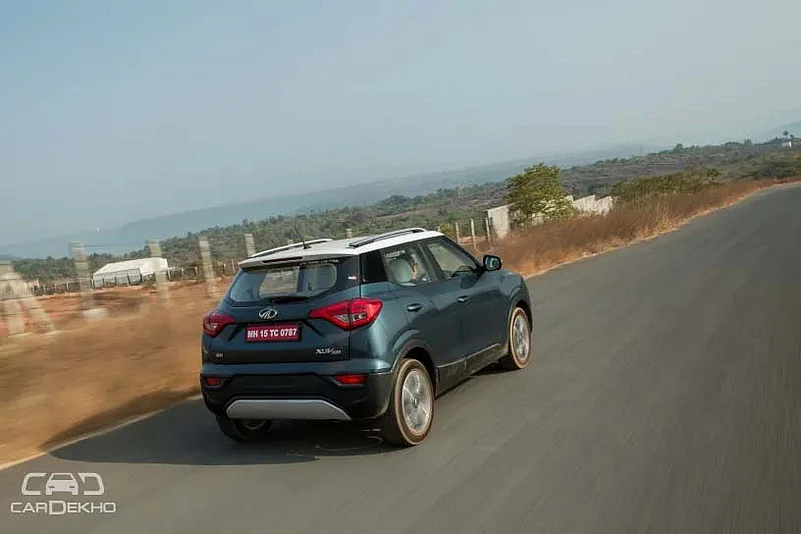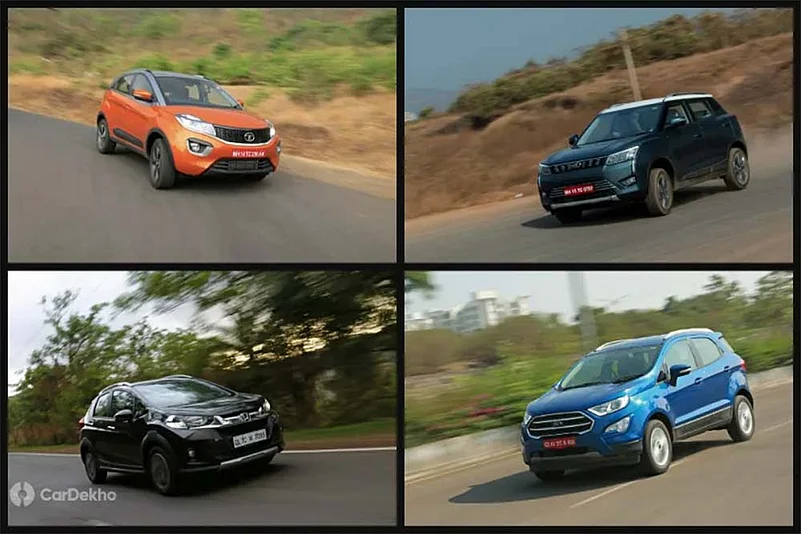The sub-4 metre SUV segment continues to grow in popularity and we’ve recently got our hands on the new petrol-powered Mahindra XUV300. While not meant for sporty performance, acceleration and braking are important aspects of daily use as well as road trips. Of course, fuel economy is a big concern as well when it comes to the petrol-engined variants.

First, let’s take a look at the engine specifications of these sub-4m SUVs:
Engine Specifications


In terms of engine sizes, the Ford has the biggest unit on offer and the most powerful as well. However, it’s the smaller Ford turbo-petrol engine that makes the most power while the 1.5-litre engine puts out 2PS and 20Nm less. All the other competitors here use a 1.2-litre petrol engine. The XUV300 has the torquiest turbo-petrol engine on offer. In terms of transmissions, Mahindra isn’t yet offering an automatic option but only a 6-speed manual with the petrol engine. The Nexon petrol comes with both 6-speed manual and AMT option while the WR-V only gets a 5-speed manual. Ford, meanwhile, offers a 6-speed manual with the 1.0-litre EcoBoost engine while the 1.5-litre engine comes with a choice of a 5-speed manual or a 6-speed auto.
Given the variety of engines, transmissions and available data, we will only be comparing real-world performance of the petrol-manual versions of all these sub-4m SUVs.

Performance Tests


While not the most powerful or torquiest car here, the Nexon was the quickest to accelerate from zero to 100kmph and quickest to cover the quarter mile as well. However, the XUV300 was the quickest to accelerate up to speed in specific gears by quite some margin.
The Honda WR-V with the least torque was the slowest in all tests and the most powerful EcoSport turned out to be the second quickest in accelerating from a standstill to 100kph and completing the quarter-mile.

Braking Distance

The XUV300 is the only sub-4m SUV to get disc brakes on all four corners while the rest have disc brakes up front and drum brakes at the rear. The Mahindra covers the shortest distance when coming to a halt from 80kmph. However, from 100kmph, it is second to the Tata Nexon. The Ford EcoSport has the longest braking distance in both tests.

Fuel Efficiency

In terms of real world fuel economy, the Nexon was the most frugal in city driving, ahead of the WR-V and EcoSport in that order. The Mahindra XUV300 was the thirstiest of the lot in both conditions, worryingly so on the highway. The Honda was the most efficient on the highway, ahead of the Nexon and the EcoSport, in that order.
Source: cardekho.com


























